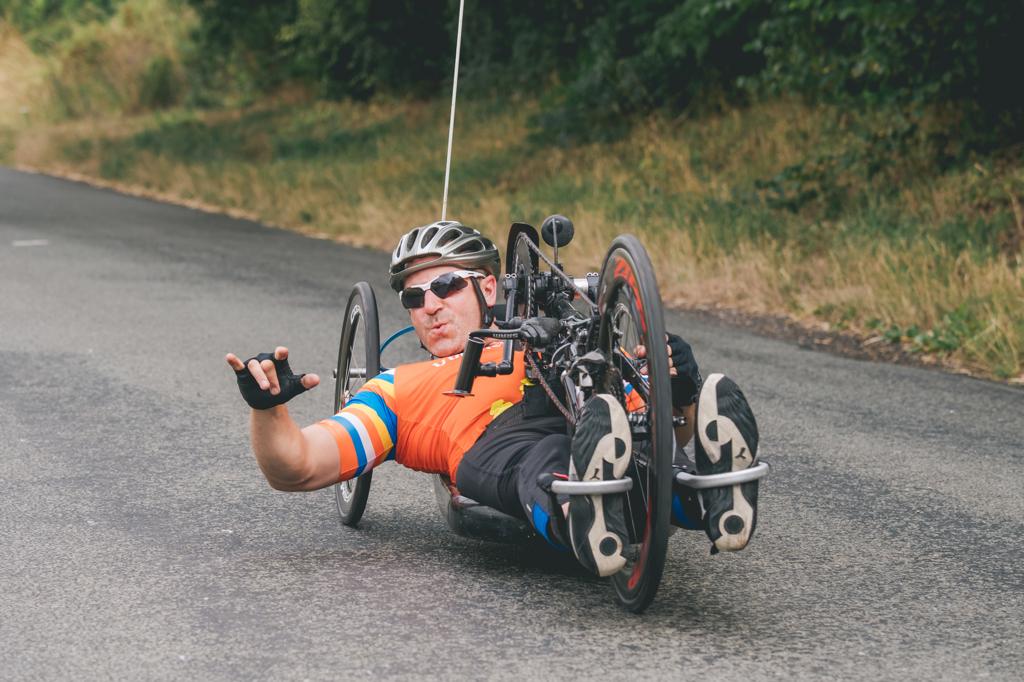
Andy Adamson is Fittleworth’s Spinal Cord Injury Specialist.
He plays a pivotal role as a primary contact for patients joining the Fittleworth service, working closely with our Navigator team to ensure the best possible support for our clients. Dedicated to his mission, he visits Spinal Care Units up and down the country, connecting with nurses and individuals with Spinal Cord Injury (SCI).
Andy’s personal journey has been marked by immense challenges, allowing him to deeply empathise with the courage and resilience required to embark on the journey of rebuilding life after a spinal injury. In this article, he candidly shares insights into his career trajectory, both before and after his accident, shedding light on his current way of life and the profound impact it has had on him.
My career post Spinal Cord Injury
“When I was asked to write a blog for Fittleworth, I didn’t know where to start! So I guess I’ll begin in young adulthood and before my Spinal Cord Injury, if you like when I think I was a fairly typical young guy.
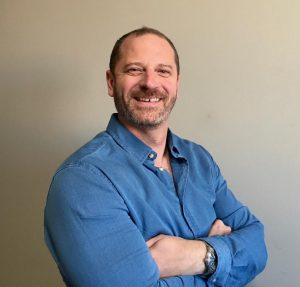
“I lived in Edinburgh after completing a Geography degree (aka “colouring in”). I was working for Scottish Water, looking at the condition of strategic water mains or water pipes that delivered water to more than 10,000 people. The job involved going out and about to remote parts of Scotland, often on private estates, digging down on pipes laid by the Victorians, and attempting to establish what kind of condition the pipes were in. I enjoyed this job and living in Scotland as it allowed me to do all the outdoor sports I was into, particularly hiking up the Munros and my main love in life: mountain biking. When you are in your early 20s, you feel indestructible, and getting out to the hills with my mountain bike and my friends was a great way of channeling that energy.
How I came to have a spinal injury
“Unfortunately, that feeling of indestructibility came to a crushing halt on a mountain bike trip to France in 2008. Late on an August afternoon, I came off my bike on a jump, went head over heels, and landed on my back in some rocks some 10 metres down the hillside. From the moment I landed, I knew it wasn’t good. The sensation drained away from my toes up to my lower chest, and the pain in my spine was relentless.
Fortunately, my friends managed to flag down a mountain patrol, and they radioed through for an air ambulance. And so I found myself at Geneva University Hospital within 40 minutes of having crashed. I had shattered my spine in three places and damaged my spinal cord at level T (thoracic) 3/5 (the part that sends all the signals from your brain to the rest of your body – a bit like a fibre optic cable). I was paralysed from the chest down and would not walk again. I had three operations to stabilise the spine and contain the broken shards of my spine to prevent further damage to the spinal cord.
I will always be thankful to the Healthcare Professionals in Geneva who patched me up, spent time with me, and looked after me so well. A month later, I was repatriated by air ambulance to the UK and straight to Stoke Mandeville for further rehab, all paid for by my £13 insurance policy I had taken out before the holiday – I always say it was the best £13 I ever spent!
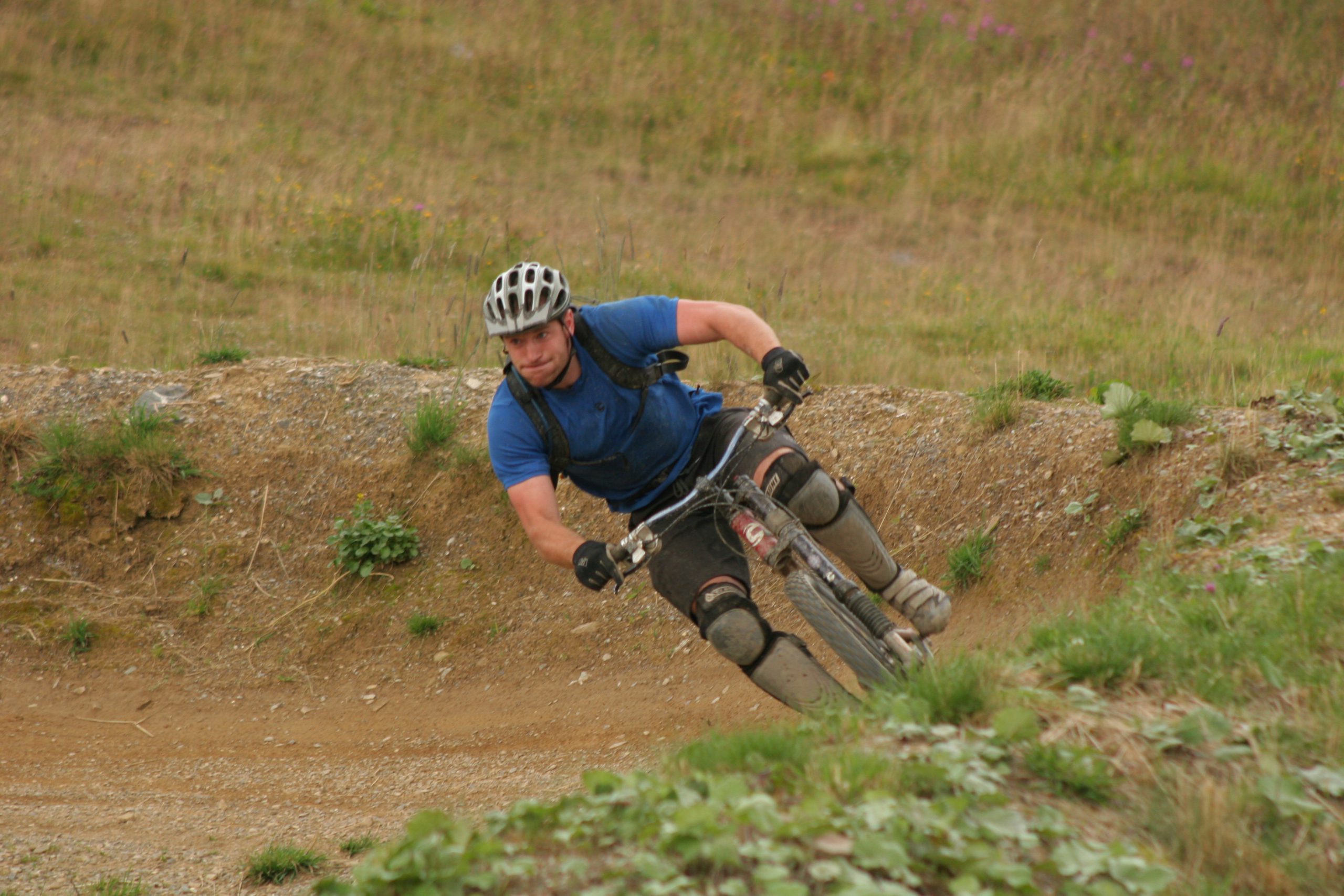
Rehabilitation post spinal injury
“So rehab started in Stoke Mandeville Spinal Cord Injury Centre, and my memories of my time there are hugely positive. Rehab was all about rebuilding your life and still doing the things you would have been doing but learning to do them differently and not letting your injury be a barrier to a full and independent life. I was on a six-bed bay with others who all had their own story to tell, and we supported each other in learning to come to terms with what was going to be our new normal.
“The physical side, learning to push a wheelchair and learning to transfer and care for your bladder and bowel, was one thing, but probably more of a challenge was coming to terms with the change of image as a young man and also the need to plan everything you did; like having to check whether places had wheelchair access and if there was accessible public transport to get there.
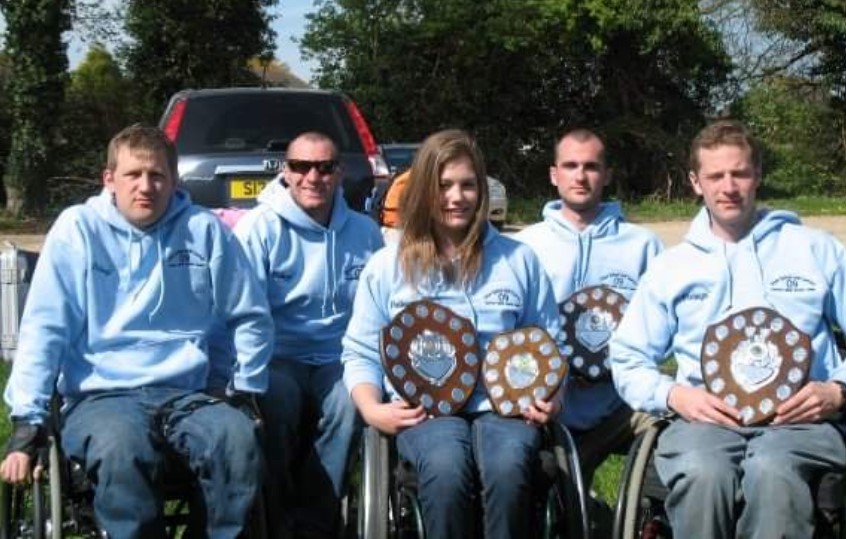
Andy (far right) and fellow team mates at the Inter Spinal Unit Games
Family support and striving for independence
“Following my time in rehab, I lived with my parents in their bungalow in Kent. It was good in that I had a reasonably accessible environment and support from family, but also difficult – being 26 years old and having to tell my parents what time I would be back in the evening. As I say, it was great to have family around and not feel like I was dealing with everything myself, but I think living with them spurred me on to getting my life back on track and a place of my own sorted out, and the only way I was going to do that, was by earning an income! That first 12 months were about finding my way on wheels, getting used to my daily routine, building confidence with short local trips, and gradually building my horizons. I was fortunate to have met a charity called Back Up while at Stoke Mandeville, and they were running a Work Skills course; designed to get you thinking about returning to the workplace, including topics such as how to disclose your disability to an employer, support available in the workplace, and how to explain a gap in your CV.
Restarting my career with a Spinal Cord Injury
“I went along and again met others in a similar position – people doing various jobs with an SCI. I knew it was possible, so I started looking for volunteering opportunities to ease myself back into the world of work and prove to myself that I was still capable. I found an opportunity helping to organise and give tours around the Olympic Park in Stratford, which at the time was a huge pile of rubble with three giant soil washing machines working 24/7.
“My role was to show people around in a small bus pointing out which Olympic venue would eventually emerge from each mound of earth! I enjoyed it, and it gave me a significant confidence boost traveling up to London from Kent on public transport and meeting many different people. It led to paid employment managing the tour programme for the Olympic Delivery Authority and then onto a Games time role, working in Accessible Transport, ensuring that people with disabilities could use public transport to travel to each of the 33 venues.
Getting back to work was huge for me; it made me feel like I was contributing to society, and I felt like I had a real purpose.
“It was also good for me physically as I was out and about every day, and I had a routine to my day, which helped me manage my injury. I finally earned enough money to move out of my parent’s bungalow!
“So to wrap it all up, so to speak, although the injury has been life-changing for me, it hasn’t been life-limiting; indeed, there have been bad days when things haven’t gone to plan, but I think everyone has those in some way or another. Fifteen years on, I still love riding my (hand)bike. I am still learning things to help in everyday life, and I’ve got a lot from supporting others through their journeys with SCI in my recent work with Back Up and Fittleworth.”
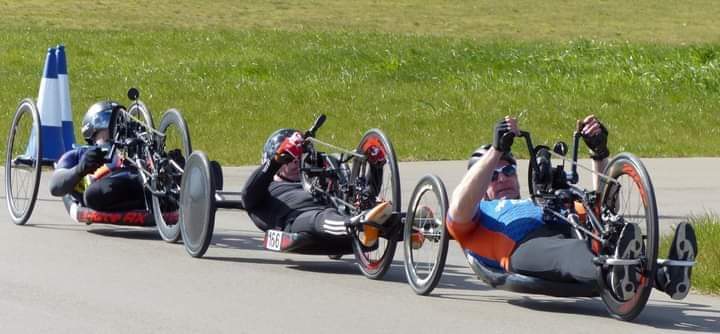
Andy Adamson is Fittleworth’s Spinal Cord Injury (SCI) Specialist. He works closely with the Navigator team and is often the first point of contact for new customers joining our service. If you’d like to know more about Fittleworth’s Navigator team, or if you’d like to find out more about the service and support available to you, visit our Navigator page on the Fittleworth website, where you’ll be able to learn more about what we do, and if you’d like to, you can also register online to join the service.
Further articles you might be interested in:
Spinal Cord Injury Jobs & Careers: Why You’re a Prime Candidate
